
It shouldn’t come as a surprise that Los Angeles electronic producer Daedelus once went on tour with Madvillain and J Dilla. His idea of a guilty pleasure is music from the 1930s. Every other picture of him shows him hunched over a monome (look it up). He’ll go on a tangent about Persian wedding bands or the Beijing opera. Yeah, Daedelus is one of those producers. The kind of guy whose knowledge of music belongs on a hard drive under lock and key at the Smithsonian. His last album was an EP with his wife Laura Darling based on a 19th century passage in Chinese history. And what’s an underground bohemian beat-head without his quirks? Mutton chops worthy of a Civil War general and a propensity for Victorian fashion and give the experimental musician a suitably odd appearance. Yeah, Daedelus is definitely one of those producers.
Daedelus recently called us from his Los Angeles home to talk about getting sampled by Madlib, the LA beat scene, and articulating his ever-twisting discography. Dates for the Magical Properties Tour below.
ML: You have a pretty daunting discography. For someone who’s unfamiliar with your music, what would be a good starting point?
Daedelus: I always hope that people have an in, some kind of gateway drug into my music. Be it somebody telling them personally what their favorite is and then being walked into things, because to my detriment, I haven’t stayed very solid release to release. It kind of flirts around different styles and ideas. Usually, if I have even the possibility of talking with somebody about what they like, I like to kind of like, ‘Oh, maybe you come from a hip-hop background. You’ll like this record called Exquisite Corpse that features people like MF Doom.’ Maybe that’s an in. If people are coming from more of an instrumental electronic place, I usually recommend Denies The Day’s Demise. Or if they’re more dance-y, I have this record Love To Make Music To which is a little more on the dance tip. There’s no easy answer, sadly. I find it amazing and wonderful that anybody is even willing to listen record to record. I find it incredible that fans are willing to make these jumps. I’m very grateful for that.
ML: Considering how many styles you jump into, maybe you should’ve adopted twenty different monikers like Madlib.
Daedelus: It’s true. My history with this kind of music is looking to these people like Madlib, but also people like Aphex Twin and electronic and hip-hop producers who tend to flirt around with different identities. At the time, I know a lot of these rappers and these people assumed different identities just to get out of contracts and whatnot, but I also think it’s belittling the audience to a degree. Because, it’s telling them that there’s this obscurity you’re not supposed to know about. That you’re assuming that people aren’t going to be into something, maybe. To a small degree. I know a lot of people don’t intend it this way, but it comes across that way to a degree. It comes across as being ego and that’s one thing I try to rally against as much as possible. I think listeners should be respected. Half the people in these audiences are other beatmakers and I was that person six years ago. I was just some kid in the audience with a demo in my pocket. I definitely still feel that to a huge degree. I still am that, it doesn’t change. I’m just trying really hard and I have a few records under my belt. We’re all in the same game. I think assuming that listeners need to be marginalized or segmented — maybe five, ten years ago it was more the case, but nowadays, most of the hip-hop kids I meet that maybe know me through Madvillain or something, they’re listening to dance music, they’re listening to electronic music. It’s all crossed over now. There’s no separation.
ML: Were you surprised when Madlib sampled “Experience”?
Daedelus: I was more surprised that they asked. [laughs]
ML: You had to clear it.
Daedelus: Yeah, exactly. I’m more surprised that they decided to clear it with me. Of course, no money, nothing like that. I just wanted my name in that book, because I heard little bits of the album before then. I’m a big fan of Doom and a big fan of Madlib and just to be part of that universe now and to have the ability to tour with them and things was such an honor at the time that I was happy to have my name in those liner notes. I was, from what I understand, the only sample that was given credit to in that record.
ML: Do you know Madlib personally now?
Daedelus: Just a bit. We’ve played plenty of shows together and I see him around LA every once in awhile. He is a very unique musical person. Unless you’re in the studio with him, you’re not likely to see him. He has one of the best work aesthetics I’ve ever witnessed. He’s always living and breathing music. The only person I ever met out of any genre who was more dedicated to music is Dilla. J Dilla was always thinking music. Maybe he had a few other distractions here and there, but at least for the time he was in LA, he was living and breathing music on a constant.
ML: When did you meet Dilla?
Daedelus: After Madvillaliny came out, I was invited to play accordion with them for the LA and SF dates. They actually invited me to play accordion for more shows than that, but I wasn’t able to at the time. I had other commitments which was to my detriment. I should have broken those commitments and gone on the road with them. But still, it was what it was. I got a chance to travel with this touring group that was Doom, Madlib, Dilla, J-Rocc, and others, which was an amazing group to tour with.
ML: Do hip-hop artists ever approach you for beats?
Daedelus: Yeah.
ML: Any far-flung inquiries?
Daedelus: I’ve done some funny ones here and there. That accordion joint made some interesting rounds. There’s a freestyle out there with Drake on it, but this was before Drake was Drake. This was more when he was the kid in the wheelchair from Degrassi High.
This is the thing that constantly amazes me. It’s how incredibly small the music world is. You think about these people who are earning millions of dollars from multinational corporations and how small it feels to be in this living room in LA on this kind of gray day that we’re having and any moment, anything can happen. Everyone’s so confused about everything. Everyone’s so up in the air. Just circling back to the show thing, making beats and making music and stuff — that just isn’t where people’s minds are right now in the music industry. Everyone’s about the show, but everyone’s super confused about how to get people into the door because they lost a whole generation of kids. There’s a whole generation of kids who don’t go out and party, these 25 to 30 year-olds. They do certain things, but they don’t really go out to clubs, they don’t have a scene offered to them. Unless you’re a hipster and you’re trying really hard as some of those kids do. If you’re in New York you must know, you’re kind of left outside of things. And so there’s all these other scenes that have been cropping up, a lot of them having to with electronic music and some of them having to do with underground hip-hop and stuff in different markets and stuff. It’s like, they’re very much appealing to people who were left behind by all these different commercial scenes and some of this hipster stuff. And then this kind of general crossover. You have these huge musicians, these Jay-Zs and whatnot, they’re just trying to figure out who they’re audience is. And then in some ways people in the underground have it easy, so there is this crossover. Kid Cudi had a Nosaj Thing track on his first record. That was a big success too, that was like the title track of his record was this underground electronic producer’s music.
ML: Where’s the most unlikely place your music has been used? Any commercials or movies or anything like that?
Daedelus: Some video games and stuff, but that makes more sense. It’s seems this whole scene has gotten co-opted in all kinds of strange places. There was a Nosaj Thing remix of FlyLo that got used for a McDonald’s French commercial, which is pretty funny. They try to make the burger all sexy so they use this silky sweet Nosaj remix. I’ve gotten some placements here and there, but it’s all too logical. I wish it was more strange films and stuff. I like the fact that a lot of times, for some reason, my music has been used quite a bit in people’s YouTube videos of their travel stories. You see people doing these kind of random videos of them riding the Shinkansen in Japan or walking around New York. I appreciate the fact that people maybe think of my music as being like soundtracks. That’s the way I mean it.
ML: Is that actually how you intend it?
Daedelus: Some of my favorite music to listen to is film soundtracks, especially from the 50s and 60s.
ML: What is Invention a soundtrack for?
Daedelus: I kind of alternate between daytime records and nighttime records and that’s my first nighttime record for sure. To me, it’s a soundtrack to a winter’s afternoon evening morning. That’s me, the thing about it is, you can’t say this stuff too much, or else you might color people’s vision towards what the record is for them. I have a song called “Dreamt of Drowning” which seems pretty literal towards drowning. I’ve had people approach me saying ‘Oh this is the song that me and my now-Wife fell in love over.’ I’m not one to tell them, ‘Well you guys are wrong because you fell in love over a song that’s about death.’ I’m not here to do that, but at the same time, there has to be a reason why you make the song and put it out there in this crazy world of music. There’s just way too much music.
There’s a very chilling fact that you get as a DJ or anyone that digs through records. You pick up these records — and you know how incredibly hard it is to put out a record, it’s not easy, it takes months of promotion. There’s millions of records in these bins and you could go through a lifetime of never seeing the same record twice. There’s just so much music matter out there. Each record represents someone’s lifetime of work, possibly. And it’s chilling because inevitably, what we’re putting out is going to end up in these used bins to be sold for a penny.
ML: Can you explain the direction of your new record with Teebs?
Daedelus: That series, the LA Series, it’s for a label called All City. I’m a firm believer that every label has their own contour, their own shape. All City is like a celebration of beats, it really is. It’s like loving that place where the beats kind of knock. I don’t know if you’re familiar with that phrase, but it causes your head to move. It doesn’t ask your head to move, it forces it. Teebs is an amazing musician, but the LA series is kind of random. I didn’t know who I was going to be paired with necessarily, but Teebs is a perfect foil. I think he’s a really exciting young voice out of LA who does really beautiful music. Between those kind of things, I wanted to make something that both expresses my joy for these kind of beats but also for beauty. So that was the attempt on that record: to say something without saying too much. Not tipping the hand, but at the same time to let things ride and rock a little bit more than I’m usually allowed to by my other labels.
ML: How do you think the LA beat scene fits into the larger legacy of West Coast production?
Daedelus: It’s a snug fit, it really is. I think there was a lost tradition of producers — that are still going, I mean you have all the electro stuff, the popping and locking in the early 80s. There was a period where somebody like Dr. Dre was part of the World Class Record Crew. It wasn’t about him being a solo artist, he was just a producer, he was about the scene. I think we’ve returned to that. We’ve returned to the fundamentals. And sure, there’s a lot of personality. It isn’t like these are formless or faceless individuals. These are people who are really performing their music and really getting in front of it, but it’s nice, it’s reclaiming the fact that Motown was here, the fact that you had Parliament Funkadelic as an outpost here. These are traditions that are very strong and I think people forget about that, they don’t think about that.
ML: How do you approach a remix?
Daedelus: It’s funny, because you want to be very careful. It’s like you want to be in a clean room and you want to really respect the original, but at the same time you want to totally transform it to your purpose. One of my rules that I keep for myself — because it’s almost like a game, it’s like a puzzle, in some ways, so I have rules that I set on myself to keep it honest. Honesty is a big part of what I like to express to people — I don’t use splits at all when I remix, I only use the whole track. That way, even if for some reason part of the song isn’t totally calling out to me, I can’t just eliminate everything except for the hi-hat, which is a common thing that people do, or a kick drum and a hi-hat. That isn’t a remix, that’s just sampling. I really enjoy having to try to wrestle with the whole song and use the parts that appeal to me, but it’s still the holisticness of it. So when you start to solve that, then you start to put your own personality on it, something kind of comes about that’s outside of yourself, which is fun, but also outside of the original. That’s where the excitement is.
ML: Do you think it’s a problem that [beat music] is hard to classify?
Daedelus: No, it’s great. That’s the gift. As soon as you start to really classify it, it starts to die.
ML: What are you working on at the moment?
Daedelus: I did a record with my wife some time ago called The Long Lost. We’re working on more material now, some covers as well as some new originals. So that will hopefully come out some day soon. Another full length from Ninja Tune. That record is called Bespoke and it’s in process. A lot of guest vocalists and stuff. And then, just trying to be out there. Trying to be in front of people playing original music and playing other people’s music and twisting it to my preferences and seeing how it impacts people.
ML: What was the last thing you bought?
Daedelus: I got a sweater, actually. I was in the UK and it was cold. I’ll be honest, I wasn’t prepared. I was like a true Californian, just not prepared for cold weather. I bought this crazy sweater by this brand called Humör and I have to admit, it’s been my daily wear now since I got back. Wearing a sweater in LA feels weird, but it feels pretty right right now as long as it stays this temperature.
Tour dates:
10/26 – W Lounge, Salt Lake City, Utah w/ 12th Planet & Teebs
10/27- Bluebird Theater, Denver, CO w/ 12th Planet & Teebs
10/29 – Double Door, Chicago, IL w/ 12th Planet & Teebs
10/30 – Sound Academy, Toronto, ON w/ 12th Planet & Teebs
10/31 – Grog Shop, Cleveland, OH w/ 12th Planet & Teebs
11/2 – Le Belmont, Montreal, QC w/ Samiyam & Teebs
11/3 – Harpers Ferry, Allston, MA w/ Samiyam & Teebs
11/4 – Le Poisson Rogue, NYC, w/ Free the Robots & Samiyam
11/6 – Bourbon Street, Baltimore, MD w/ Free the Robots & Samiyam
11/7 – DC9, Washington, DC w/ Free the Robots & Samiyam
11/9- Club 828, Asheville, NC w/ Free the Robots & Samiyam
11/12 – The Masquerade, Atlanta, GA w/ Free the Robots & Samiyam
11/13 – The Howlin’ Wolf, New Orleans, LA w/ Free the Robots & Samiyam
11/14 – Barcelona, Austin, TX w/ Free the Robots & Samiyam
11/16 – Trees, Dallas, TX w/ Free the Robots & Samiyam
11/17 – Ground Hall, Houston, TX w/ Free the Robots & Samiyam
11/18 – Club 101, El Paso, TX w/ Free the Robots & Samiyam
11/19 – Club Red, Tempe, AZ w/ Free the Robots & Samiyam
11/20 – House Of Blues, Los Angeles, CA w/ Free the Robots, Samiyam & Teebs

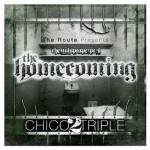
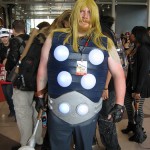
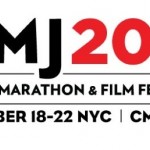
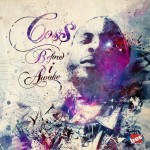
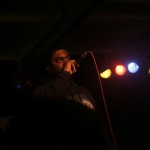








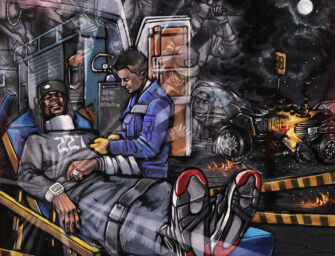
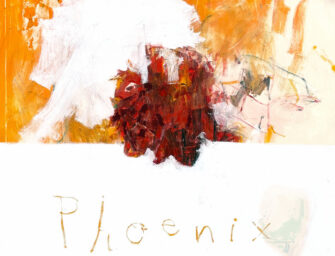
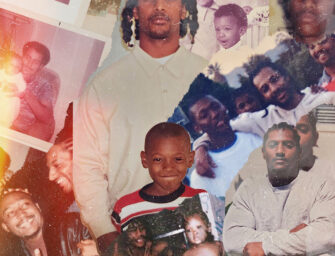
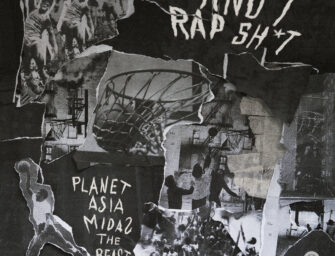
[…] Metallungies Hollers @ Daedelus, Interview by knobbzXL […]
[…] out instrumentals tailor made for beat-heads. Daedelus, who was on the last edition with Teebs, called All City “a celebration of beats.” LA Series #7 pairs Dam-Funk and Computer Jay. […]
[…] came across the topic of falafel and elicited very strong responses. When I brought up falafel with Daedelus, he said, “DUDE!” and he made me promise to send him my NYC falafel picks (the genesis […]
[…] Daedelus – underground LA beat man […]
[…] is one of the most interesting and articulate interview subjects I’ve ever had. Capone-N-Noreaga are up there […]